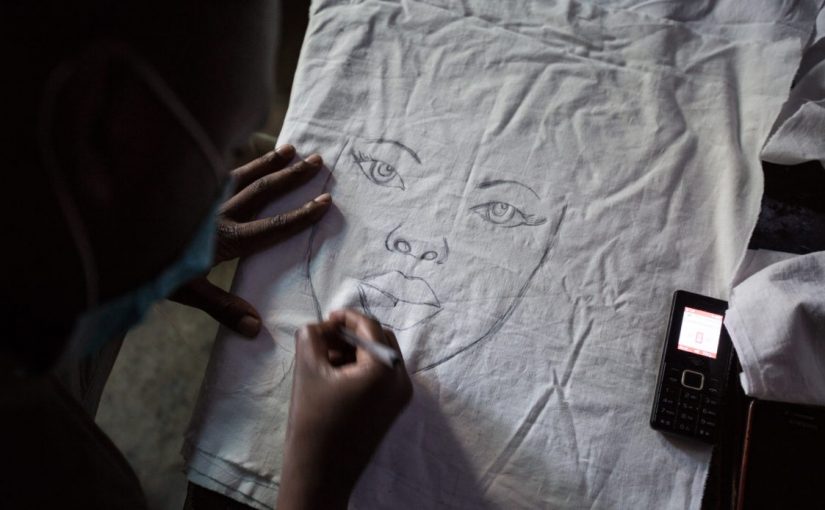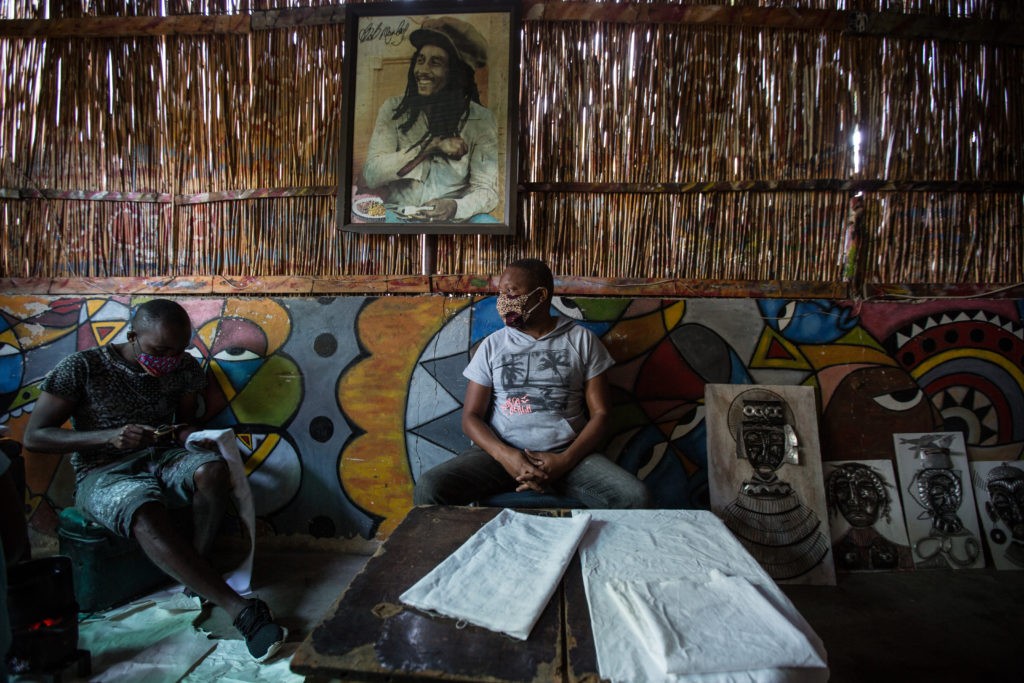Mozambique hosts Audiovisual Heritage Meetings
Mozambique: Artist takes up painting walls to survive the crisis

[Photo: Ricardo Franco/Lusa]
An artist who made his living painting batiks, handmade fabrics used for decoration, has now started painting walls and working with children to survive the Covid-19 crisis.
“We get an odd job here, another one there. Sometimes it is a wall to paint” or children who have no school because of the pandemic “and parents call on artists to keep them occupied,” Elias Cumaio, an artist living in Maputo, says.
Elias Cumaio grew up and lives in Bairro do Aeroporto, well-known in Mozambique for its art and artists.
The batiks that Elias and the other artists in the Aeroporto neighbourhood produce are usually stretched on frames and used for interior decoration, providing a livelihood for a number of families.
On a normal sale day, each piece sold could make the artist up to 500 meticais (six Euros) in profit, but the Covid-19 pandemic has wiped out the tourist trade, and other buyers have practically disappeared too.
“We are reinventing ourselves to put bread on the table. Today, I can say that a whole month has passed without me selling a single work of art,” Elias says.
Elias has been asked to paint the walls of bars, homes and schools, and even to teach children to paint, at the request of their parents.
“There comes a certain time when, out of hunger, one can’t think about profit. If I have ten works, my intention is to sell them and put bread on the table,” he says.
Elias complains that artists cannot live decently, and decries the lack of opportunities, bewailing the “beautiful houses with empty walls” and the lack of domestic appreciation of Mozambican art.
The artist says the state should support artists out of the taxes it charges them.

Elias paints and sells at FEIMA, Fair of Crafts, Flowers and Gastronomy located in prime areas of the capital.
His colleague Sérgio Mazive, 42, who has been making and selling batiks for about 20 years, lists the same difficulties. With the Covid-19 crisis, “everything is closed”, he says.
“There are few customers,” he says, and, in the domestic market, people “are more inclined towards subsistence”. “There is no business – less than half what there was,” he complains.
Before, he used to sell between 50 and 100 batiks a month, especially in summer and on holidays. His biggest customers were companies which bought his works to give as gifts at conferences, but these have stopped being held.
Now, the point has been reached where “even food is lacking”.
By Monday, Mozambique had recorded a cumulative total of 1,219 Covid-19 cases, with nine deaths.












Leave a Reply
Be the First to Comment!
You must be logged in to post a comment.
You must be logged in to post a comment.